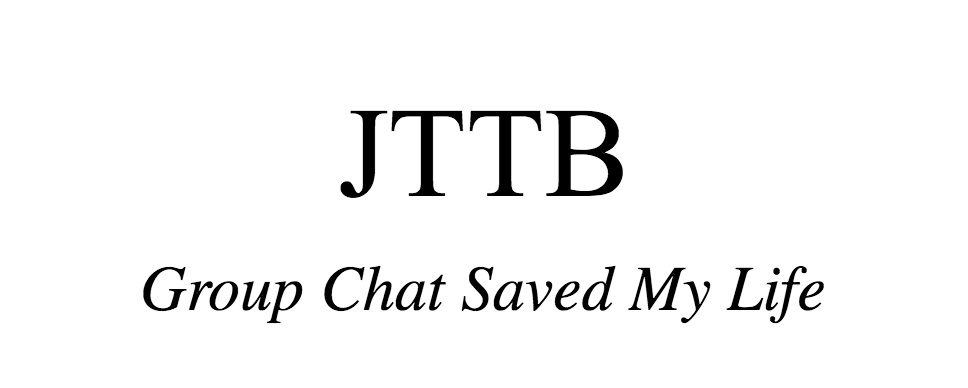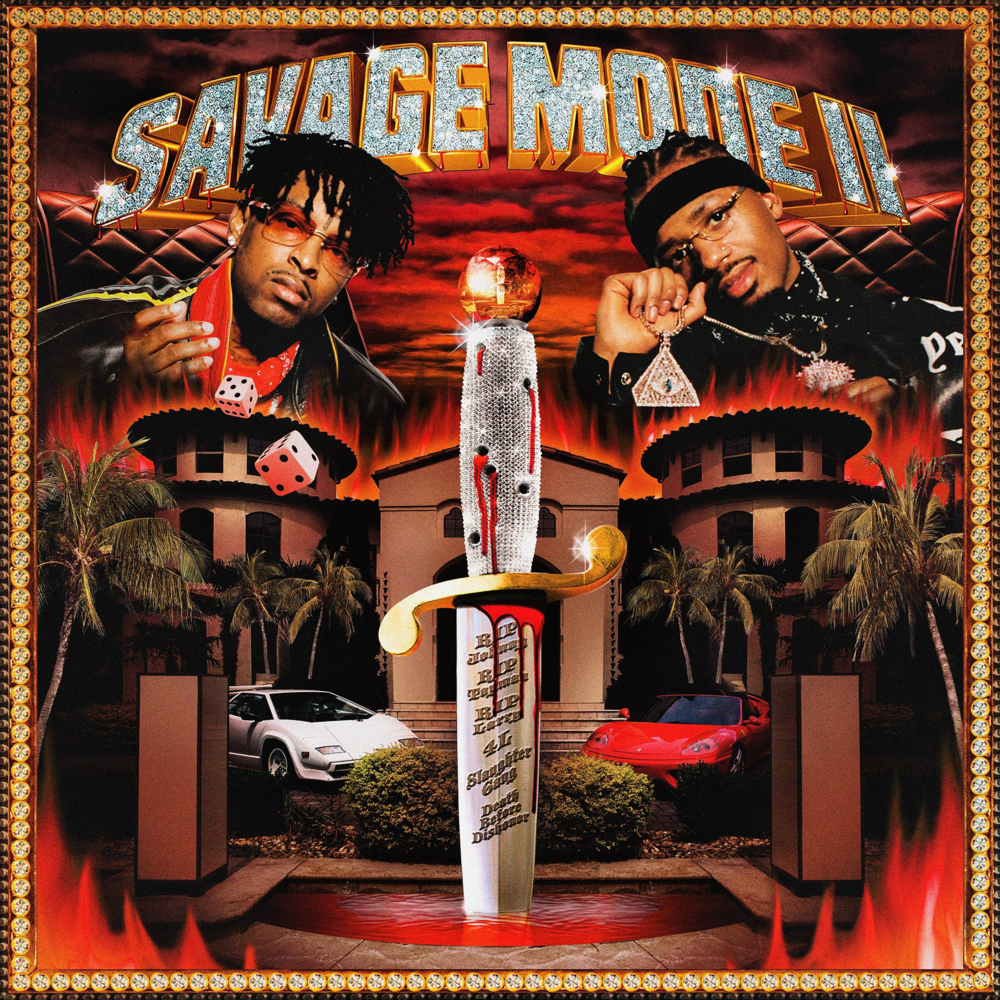In Review: Savage Mode II
In a year with only about one or two notable trap albums and plenty of bland, monotonous, and forgettable ones, 21 Savage and Metro Boomin have come together once again for a full length project and taken the crown for the best trap album of 2020.
But, we can’t talk about the album yet without mentioning the cover. After seventeen years of inactivity, 21 Savage and Metro Boomin have resurrected the offices of Pen & Pixel Graphics for the release of Savage Mode II with album art that's a generation removed from the era it recalls.
The two Atlantans loom over the cover with a hellish mansion, palm trees, and even the iconic knife from the original Savage Mode cover that’s now decked out in flashy bling. Most social media discussion involved younger listeners who were baffled by its throwback art style, and I had a related concern, “what did 21 Savage have to do with the dirty-south sound suggested by the cover?” On songs like "No Heart" from the first Savage Mode, he and Atlanta super-producer Metro Boomin had replicated all the tension of a horror film in a trap single. Suspended in Metro's ominous minor-key synth creaks, 21 delivered a murderous drip-feed of syllables, slowly sketching out stories in his lethargic Atlanta drawl that would give Freddie Krueger nightmares. But the party ready albums accompanied by Pen & Pixel covers were usually fun, high-energy, and even somewhat bouncy.
Where was the connection?
As it turns out, Savage Mode II seamlessly unites the old with the new, making perfect use of both Metro and 21's creative leaps since their last collaboration, 2017's Halloween surprise Without Warning. If the first Savage Mode was a low-budget slasher flick, then this album is its exploratory, big-budget sequel; it's even got deadpanned narration from Morgan Freeman himself to show you just how much of an event it wants to be.
A song like "Glock in My Lap" replicates the duo's original formula, with slow-paced threats of violence over simple, hair-raising piano chords, but this time frenzied violins and medieval choirs enter frame during the chorus to make things even more frightening.
On "My Dawg" over similarly harrowing melodies, 21 Savage pays tribute to Nipsey Hu$$le, raps about a failed pawn shop robbery that killed his friend, and also takes the time to threaten those who ridiculed him after the 2019 ICE raid that revealed he was born in the U.K..
Between these tracks, Metro Boomin navigates between a variety of other sounds that sometimes evoke old-school strands of Pen & Pixel-style Southern hip hop, offering his most impressive collection of beats in years. His brilliant ear for production allows him to allude to the musical history of the South's major cities without losing his grip on the sounds that made this duo popular. With its joyous violin, springy percussion, and sliding bass, the love song (and my favourite song on the album) "Rich N**** Shit" would be a dead ringer for the hits that Mannie Fresh was making for Cash Money Records in New Orleans twenty years ago, if it weren't for the song's refrigerated synths, as well as the gleefully-Auto-Tuned squawks and warbles of Young Thug's featured verse.
Along with a healthy helping of '00s crunk influences, much of the album pulls from the ominous atmospheres of '90s Memphis rap, some of the darkest music to ever claim the original Pen & Pixel aesthetic. "Many Men" isn't all that different from 21 Savage's usual material, referencing 50 Cent's 2003 hit "Many Men" to convey his paranoia, "many men wanna kill me, dawg, I feel like 50". But everything about the song; from its spooky melody to the outro, where 21 warps his vocals over a slowed sample of the original 50 Cent song - feels like the horror-tinged music pioneered by Memphis groups like Three 6 Mafia, the stuff that inspired producers like Metro Boomin in the first place.
Often, the album's eclectic range of production styles gets 21 Savage out of his comfort zone to spotlight what makes him such a talent. Savage Mode II's closing track, "Said N Done", has the airs of a silky '90s R&B song; you'd expect soulful crooning over it, which makes the icy monotone of 21's voice feel even more numb and traumatized than usual.
In perhaps the album's weirdest experiment, "Steppin’ on N****s” flips a sample of the 1986 Rodney O song "Everlasting Bass", record-scratches and all. 21 Savage, who's a much more skilled rapper than he was three years ago, even tries on the dated flows of an '80s rapper — to hilarious effect, since he's still using over-the-top, modern punchlines like "had them killers on your step like DoorDash". Along with '80s staples like N.W.A., you could imagine this sparse instrumentation thumping out of one of the raw dirty-south records released in the '90s by New Orleans label No Limit.
That's not to say Savage Mode II is stuck in the past. On "RIP Luv", a cloudy, heavily-distorted wash of synths establishes a nostalgic Soundcloud atmosphere, as 21 uses his cold, guarded delivery to convey how worn-down he's become after ending a relationship wracked with infidelity, "Rest in peace to love, I gave up a long time ago...I be crying on the inside and smiling when the cameras gone". "Mr. Right Now" reminds me of the boundary-pushing output of current trap producers like Pi'erre Bourne more than anything old-school. Although I think Drake’s verse is the only low point on the album, especially with the bar about dating SZA when she was 17… c’mon Aubrey. By virtue of the song’s Drake feature and infectious chorus, it's the album cut most likely to be a hit.
Songs like these still demonstrate how well Savage Mode II manages its versatility. It knows exactly when to aim for something popular and when to gesture at the past; it knows exactly when to explore territory like R&B and when to go back to the cutting brutality that made 21 Savage famous. Plus, it's all united by well-placed beat transitions that make the project an endlessly fun, rewarding listen.
I expected this album to be as high quality as both the original “Savage Mode” and “I Am > I Was”. What I didn’t expect was for this album to thoroughly exceed both of those. Albums like this should put the notion to rest that 21 Savage is some generic, southern, subpar rapper. He belongs in a different class for how well he can come across as dark, somber, clever, and aggressive, all while not really even changing his tone. Metro Boomin showcases his maturity on here as well and manages to remind listeners of his place as one of the greatest producers in the trap subgenre.

